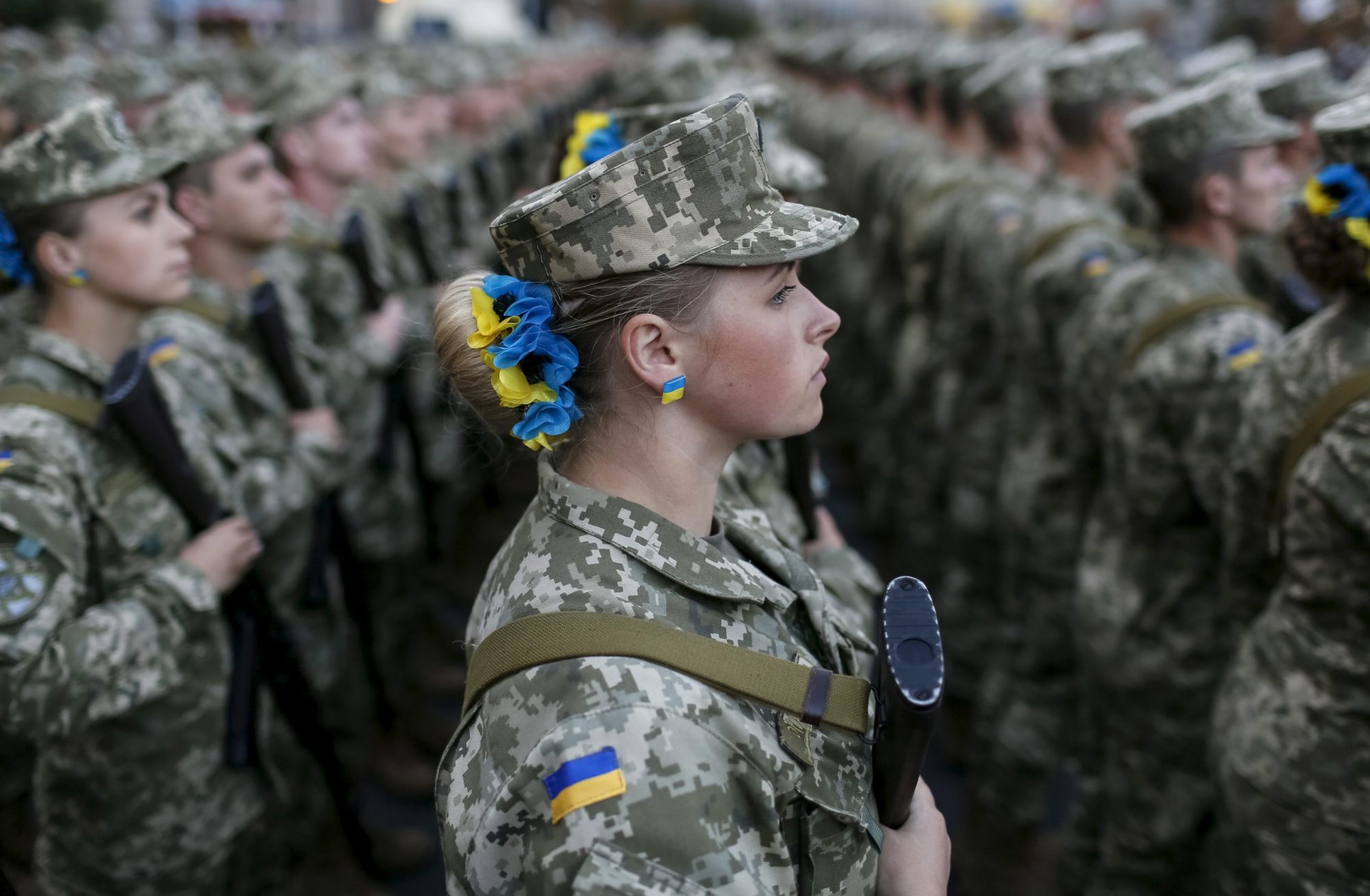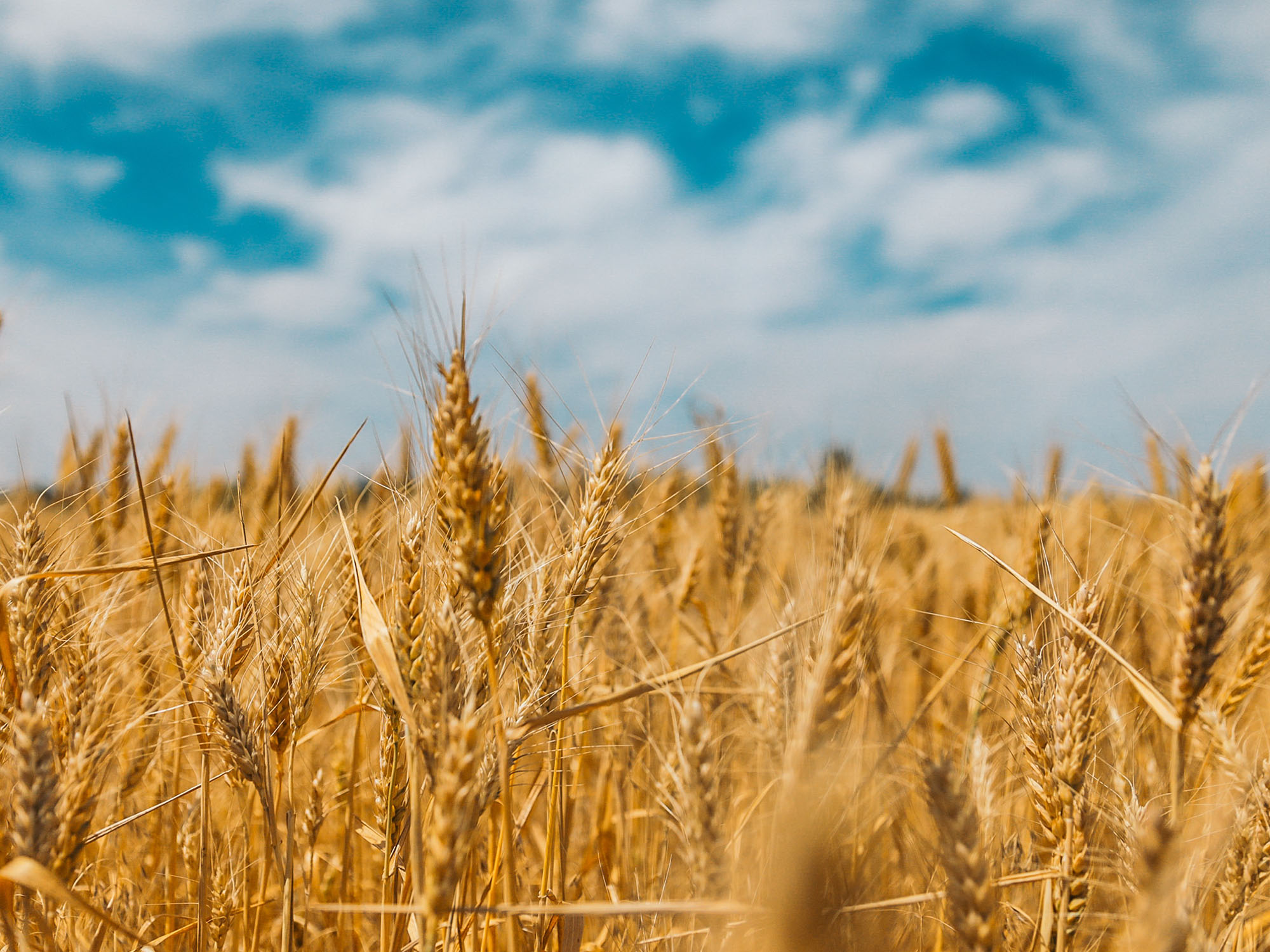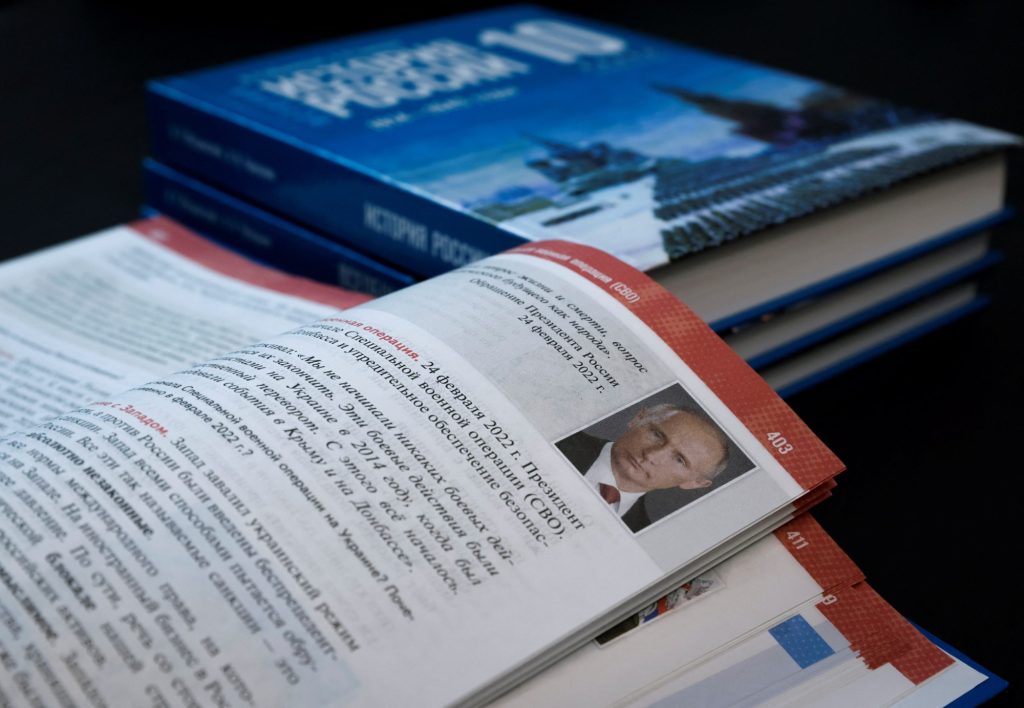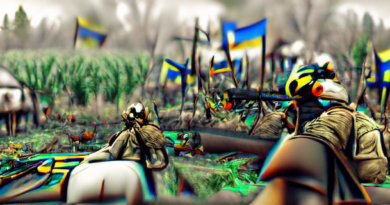Putin weaponizes history with new textbook justifying Ukraine invasion
Russian society has never undertaken an introspection of Czarist colonialism or Soviet crimes against humanity because the post-Soviet Russian Federation did not evolve into a genuinely post-imperial nation state. Instead, during Vladimir Putin’s nearly quarter of a century in power, a new generation of Russians have actively embraced the country’s imperial identity. This unreconstructed imperialism led directly to the current full-scale invasion of Ukraine and will remain a major threat to international security until it is acknowledged and addressed.
The recent publication of a new history textbook for Russian schoolchildren highlights the continued dominance of unapologetically imperialistic thinking within the Russian establishment. “This isn’t a historical textbook, but a narrative of excuses for Russian and Soviet crimes, as well as an exhortation to young readers to accept these crimes, past and present, as their own,” commented Jade McGlynn, the British author of a new study of Russian memory politics.
Subscribe to UkraineAlert
As the world watches the Russian invasion of Ukraine unfold, UkraineAlert delivers the best Atlantic Council expert insight and analysis on Ukraine twice a week directly to your inbox.


The launch of this new textbook is worthy of particular attention. As an officially sanctioned guide to Russian history that is clearly designed to shape the world view of young Russians, it highlights many of the key messages at the heart of modern Russian imperialism and lays bare the Kremlin’s efforts to weaponize history in order to justify its own wars of aggression.
Unsurprisingly, the textbook glorifies centuries of Russian imperial expansion and whitewashes the crimes of the Soviet era, while dehumanizing Ukrainians as Nazis and portraying the West as implacably hostile to Russia. It defends the Russian invasion of Ukraine and places Putin alongside other leading Russian imperialists such as Peter the Great and Stalin as a “gatherer of Russian lands.” Meanwhile, setbacks such as the collapse of the USSR and the loss of Russian influence in the post-Soviet space are portrayed as part of a long-term Western anti-Russian conspiracy.
One of the key threads running through the new textbook is the notion of Russian victimhood. Russia is consistently portrayed as a victim of Western intrigues and is never the aggressor. Needless to say, there is no thought for the entire nations subjugated or destroyed by Russian imperial aggression. In this highly distorted and hopelessly partisan reading of history, the largest nation on the planet is also the world’s biggest victim.
Eurasia Center events


The messianic view of Russian history outlined in this newly published textbook is part of a long tradition of Russian exceptionalism dating back to Czarist times that portrays Russia as a nation on a sacred civilizing mission. With Russia depicted as an unquestionably positive force for good in the world, the use of force in pursuit of this role becomes easily justified. Such twisted logic remains prevalent today and helps to explain the popularity of otherwise absurd arguments framing the invasion of Ukraine as an attempt to rescue Ukrainians from themselves.
This embrace of exceptionalism encourages Russians to romanticize the violence that has defined much of their country’s history. It also reinforces a sense of continuity linking the Czarist and Soviet past with the Putinist present. For millions of Russians, post-Soviet military campaigns including the frozen conflict in Moldova, two Chechen wars, the invasion of Georgia, the seizure of Crimea, and the intervention in Syria are all part of a expansionist tradition stretching back centuries.
Putin himself has spoken of the USSR as “historical Russia under the name of the Soviet Union.” He has directly compared his Ukraine invasion with the imperial conquests of Peter the Great, and has made clear that the goal of today’s war is to reclaim “historically Russian lands.” No doubt Putin’s Czarist predecessors would find these imperial ambitions immediately recognizable.
In line with Putin’s claims to be restoring historical justice in Ukraine, the new textbook rejects the idea of Russia as a colonial power and instead speaks of “reuniting” territories or liberating neighboring nations from oppression. Meanwhile, those who have dared to condemn or fight against Russian expansionism are depicted as agents of the West or nationalist extremists. The incorporation of new territories by Russia is portrayed as beneficial for the people being incorporated, regardless of whether they themselves agree.
The recent publication of Russia’s new history textbook is a comparatively minor event at a time when the Kremlin is waging a genocidal war of imperial conquest in the heart of Europe. Nevertheless, it should serve as a wake-up call for anyone still laboring under the delusion that Putin is a rational leader pursuing limited geopolitical objectives. On the contrary, he presides over a regime and a society that openly embraces a brand of imperialism which most Europeans assumed had been consigned to the ash heap of history generations ago.
This imperialistic mindset represents perhaps the greatest single obstacle to a sustainable peace in Europe. Even if the invasion of Ukraine ends in military failure, the underlying problem of Russian imperialism will remain until Russians are forced to confront their country’s long history of imperial aggression. This will likely be a painful process, but it is unavoidable if Russia is to eventually emerge as a modern state and reintegrate into the wider community of nations.
Taras Kuzio is a professor of political science at the National University of Kyiv Mohyla Academy and author of the recently published “Fascism and Genocide. Russia’s War Against Ukrainians.”
Further reading
The views expressed in UkraineAlert are solely those of the authors and do not necessarily reflect the views of the Atlantic Council, its staff, or its supporters.


The Eurasia Center’s mission is to enhance transatlantic cooperation in promoting stability, democratic values and prosperity in Eurasia, from Eastern Europe and Turkey in the West to the Caucasus, Russia and Central Asia in the East.
Follow us on social media
and support our work
Image: A portrait of Russian President Vladimir Putin is seen on a page of the chapter “Russia Today – The Special Military Operation” in the newly published textbook for school children entitled “History of Russia 1945 – the start of 21st Century” in this illustration picture taken August 10, 2023. (REUTERS/Shamil Zhumatov/Illustration)
This article has been archived for your research. The original version from Atlantic Council can be found here.



